The highs and lows of opening a safe drug injection centre
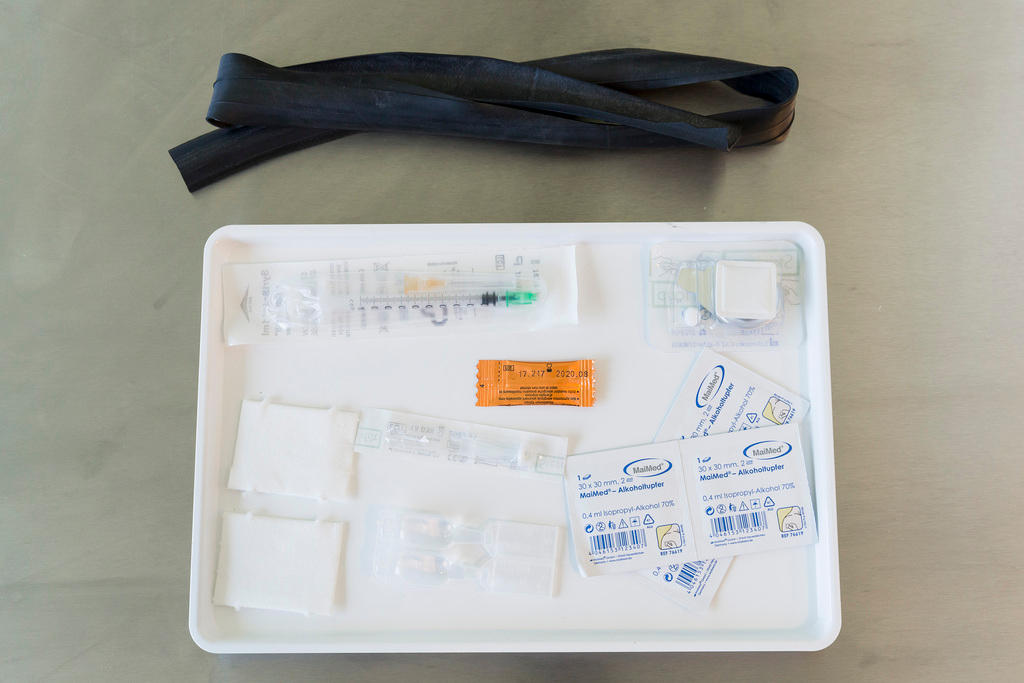
Switzerland’s pragmatic approach to dealing with drug addicts is often upheld as a model. Safe injection centres, which form part of Swiss policy, have existed in eight cities for over 30 years. Yet opening such facilities is fraught with difficulties, as the new Lausanne centre has shown.
At the reception desk at Lausanne’s new safe injection centre, sheets of aluminium foil, syringes, crack pipes and other drug paraphernalia are piled up in white plastic boxes.
The newly painted facility – white walls with splashes of lime green – comprises an “injection space” with four desks and chairs, an “inhalation space” for four around a circular metal table, a “sniff” room and a small health clinic with a bed.
Local councillor Oscar TosatoExternal link, one of the driving forces behind the three-year CHF4-million ($4 million) pilot project, said the centre, which opened on October 1, was the missing element in Lausanne’s portfolio of services for addicts. He is certain it will help problematic users reduce risks and lead to fewer disturbances in the city.
“Today drugs are consumed in public, in toilets, in the forest or in building courtyards. Here people can find sterile material and trained staff,” he explained.
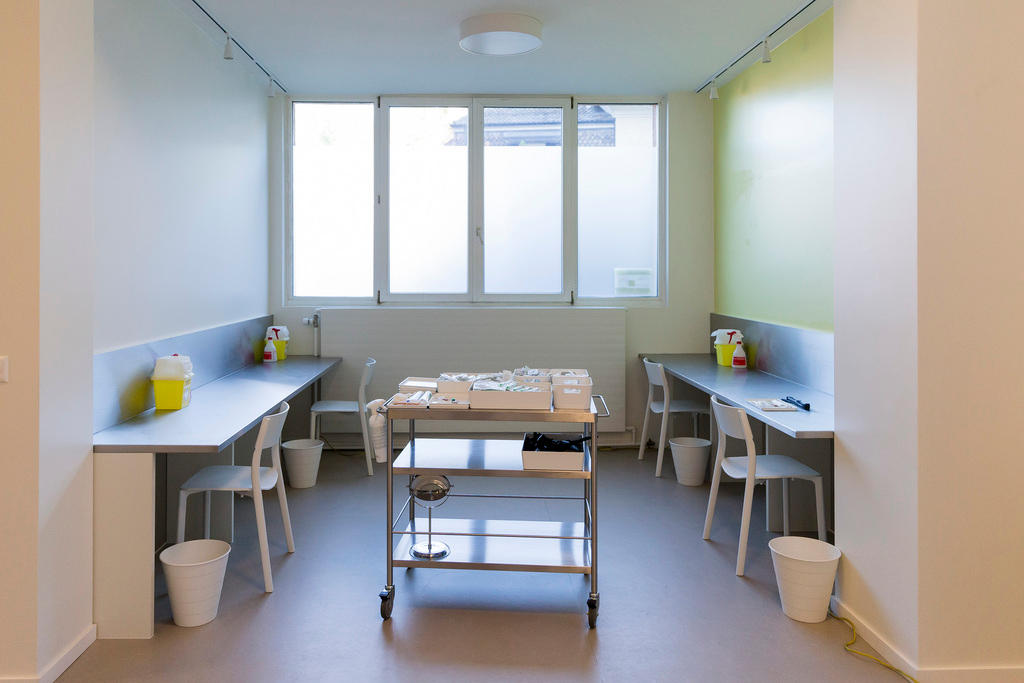
Open every day from 12am to 7pm, the centre is supervised by four staff, accompanied by a security guard. Around 100-150 addicts are expected every day.
For the uninitiated, the centre is fairly inconspicuous, hidden in a non-descript pink apartment building in the quiet Vallon district. These are the premises of the Accueil à Bas Seuil Foundation (ABS)External link, which has been offering services for homeless people and individuals with alcohol or drug problems since 1999.
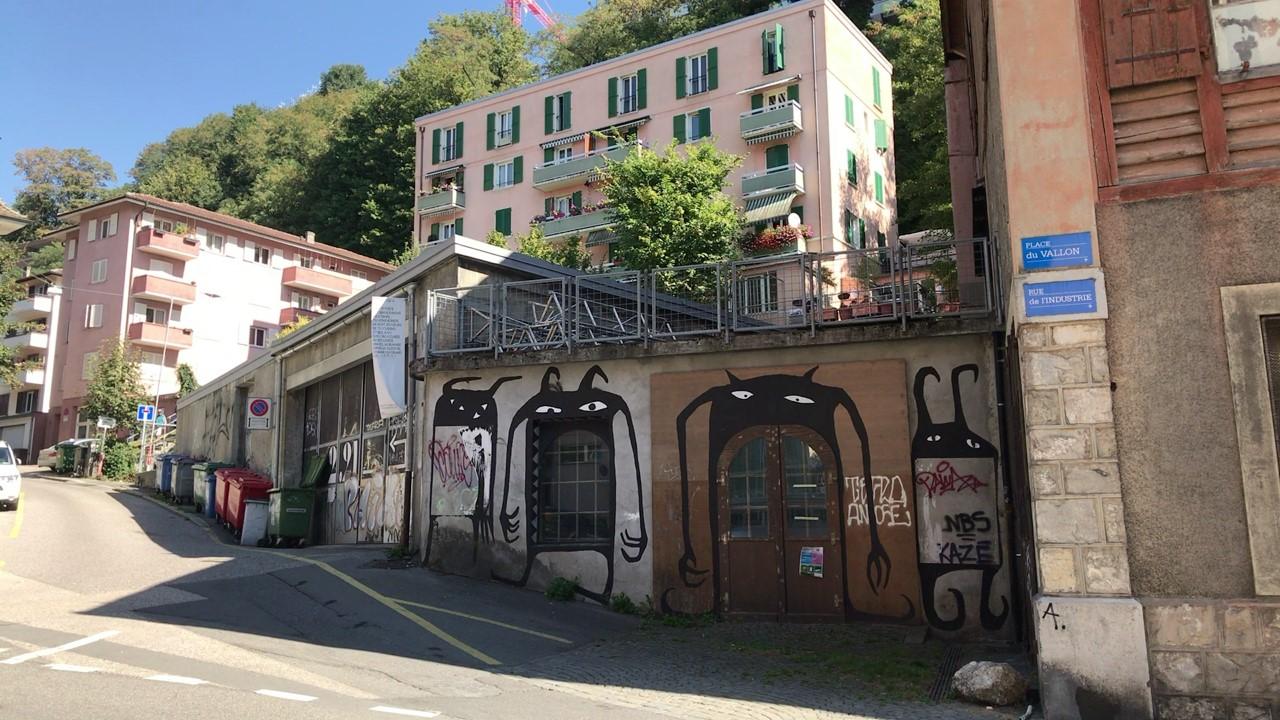
Lausanne joins eight other Swiss cities with safe injection rooms (Bern, Zurich, Basel, Bienne, Geneva, Lucerne, Solothurn and Schaffhausen). Such facilities belong to Switzerland’s four-pronged drugs strategy – prevention, therapy, damage limitation and repression – which is often cited as a pioneering, humane model. This pragmatic policy, introduced in 1991, was born out of the Zurich drug problems of the 1980s and 1990s.
“Drug injection centres represent the level zero of intervention, as they allow for some contact and for dignity to be given back,” explained former Swiss president Ruth Dreifuss, chair of the Global Commission on Drug Policy. External link
Long slog
But the history of the Lausanne centre has been a long uphill battle for the organisers. It comes eleven years after local voters scrapped the authorities’ plans for a similar safe injection room, and follows endless debate, negotiation and threats of a second referendum.
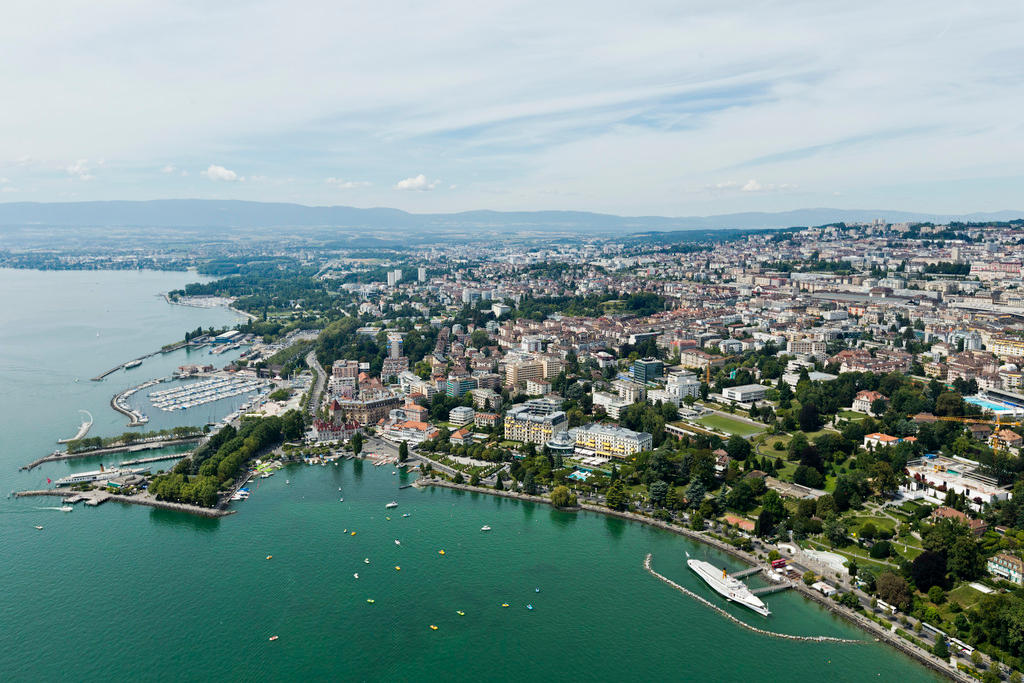
Following the 2007 rejection at the ballot box, Tosato and his colleagues were forced back to the drawing board. The long and exacting process involved visits to Geneva, Biel and Zurich to learn from their experiences, finding a partner with knowledge of dealing with people with drug problems, and overcoming the many administrative hurdles and resistance.
Cultural differences over national drug policy between German- and French-speaking regions may well have played a role in Lausanne dragging its feet.
There are said to be around 3,500 heroin users in the Vaud region (population of 780,000), of whom 2,000 are on heroin substitution programmes. Cocaine is more popular: over 16,000 people in Vaud use cocaine, or 2.5% of the local population. Twenty per cent are regular cocaine users, including addicts.
“In the 1990s, Swiss German regions were forced to quickly find solutions that work. They have a strength: culturally, they are very pragmatic. They knew how not to get caught up in mental images or moral judgements about drug use, which is necessary to understand the importance of risk reduction and survival assistance activities,” ABS Director Mathieu Rouèche told Le Courrier newspaper.
Locally, it took several years to convince decision-makers and the population of the values of risk reduction and its coherence with the other pillars of Swiss drug policy, he explained.
At the political level, the centre-right slowly acknowledged the usefulness of the project. The local council and parliament in canton Vaud finally approved it last year. Opponents then dropped the idea of a second referendum.
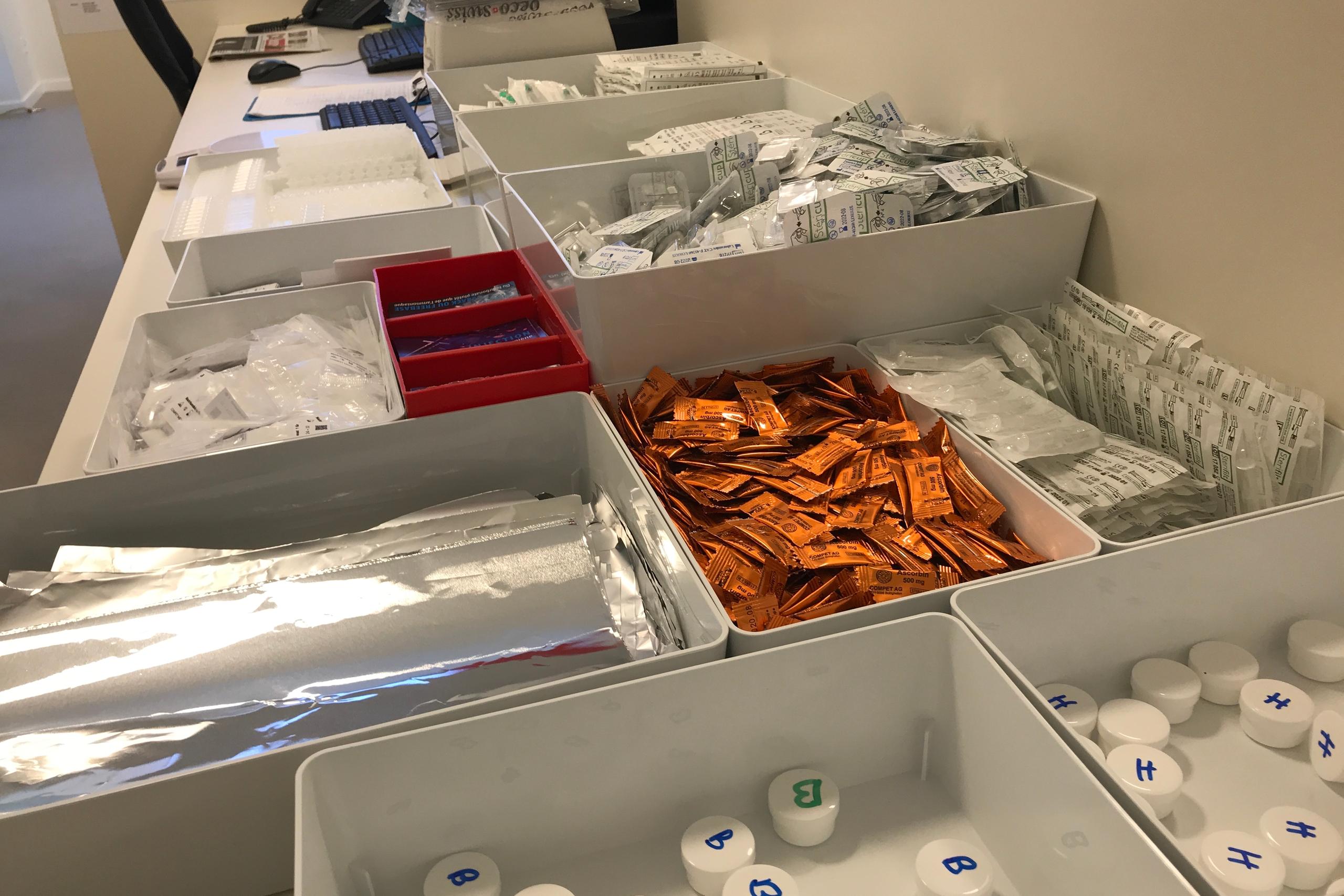
Future impact?
During this time, huge pressure came from other sides. For years, Lausanne city centre, in particular Riponne Square, has been the meeting point for some of the most vulnerable users. The visible drug scene, and tense relations between residents, dealers and users have sparked controversy and led to demands for action.
Anaya, a hairdresser who works in the Vallon district, said long-term residents had been fed up “seeing people half out of it”, syringes and drug material littering the streets, and their children “not being able to grow up normally”.
Tosato insists that Vallon residents were widely consulted about the new injection room and will continue to be regularly informed. A reinforced police presence is also in place.
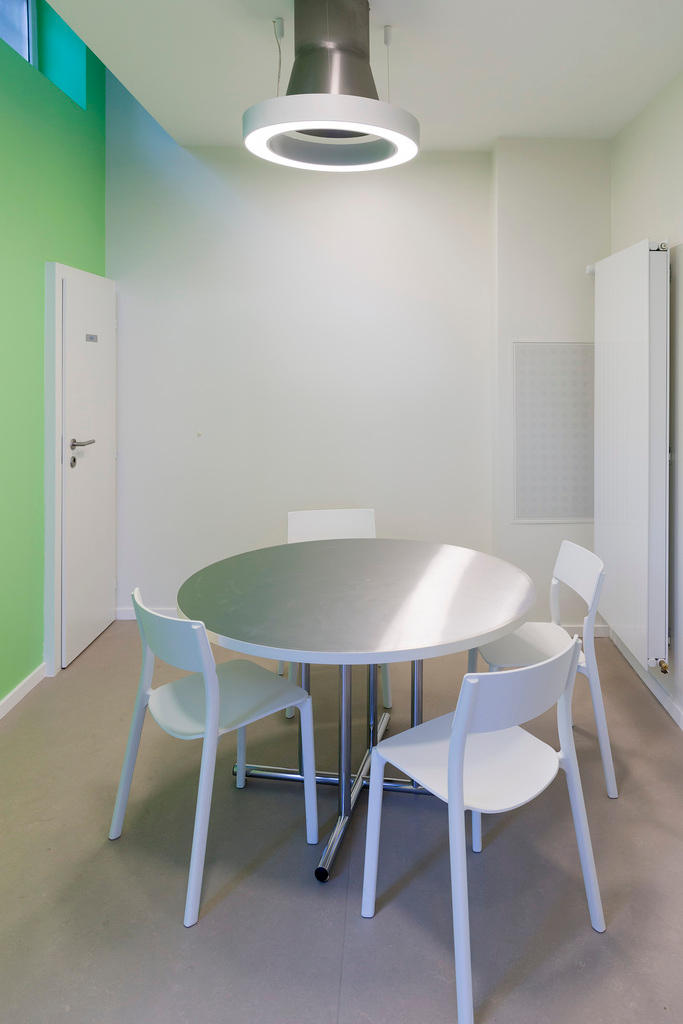
Anaya said most locals viewed the centre as a positive development but were waiting to see its impact.
“I prefer for there to be a centre than for people to be getting high all over the place with all the various problems that creates,” local garage owner José-Manuel Carballo told Swiss public television, RTS.
Françoise Longchamp, treasurer of the French-speaking Association Against DrugsExternal link, remains a staunch opponent, though.
“It won’t change much in terms of dealing, as some dealers will move closer to the centre to find their clients,” she said. “And I don’t think such a centre will help drug addicts. It’ll just keep them in a state of addiction and allow them to inject more peacefully, but it won’t help them see the end of it.”
After the enthusiastic inauguration, there are some fears that users may simply continue to take drugs in local forests or in the street.
Jean-Félix Savary, secretary-general of the French-speaking Group for Addiction StudiesExternal link, (GREA) warns that the new centre will not solve all of Lausanne’s drug problems.
“It will have little impact on the drug market and presence of users in public. But if it works well, coexistence [with residents] will be better and there will be almost no more wild shooting up [outside],” he told 24heures newspaper.
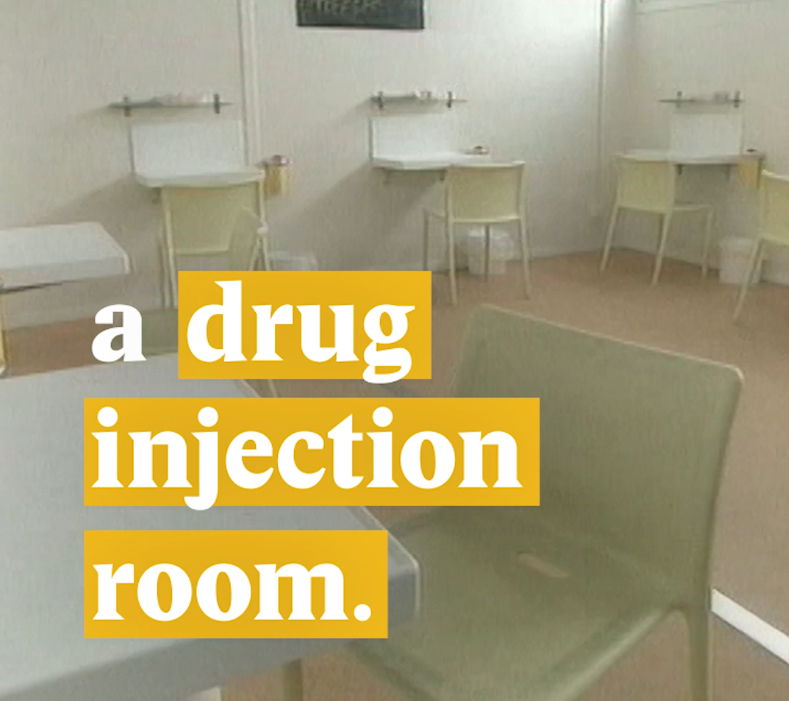
More
Safe injection rooms for drug users

In compliance with the JTI standards
More: SWI swissinfo.ch certified by the Journalism Trust Initiative











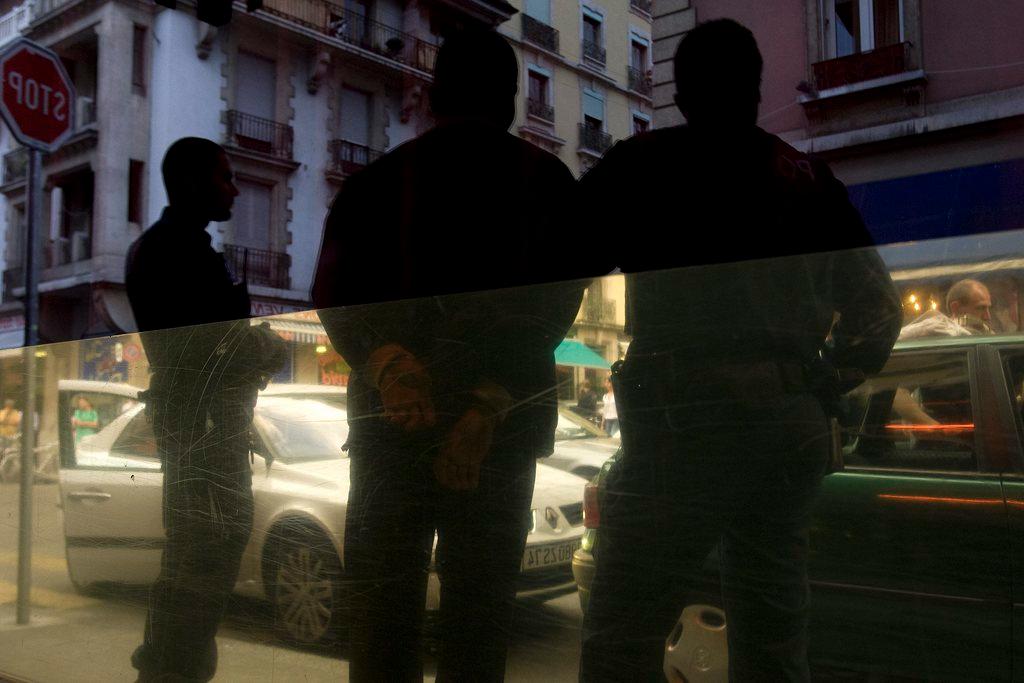
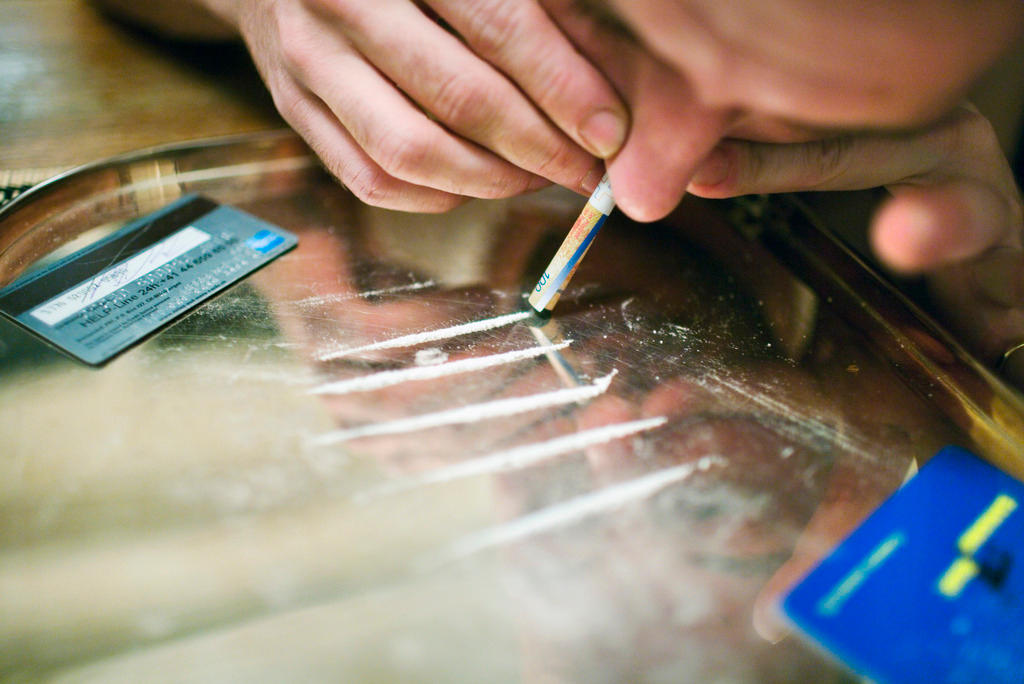
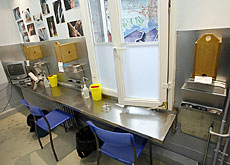
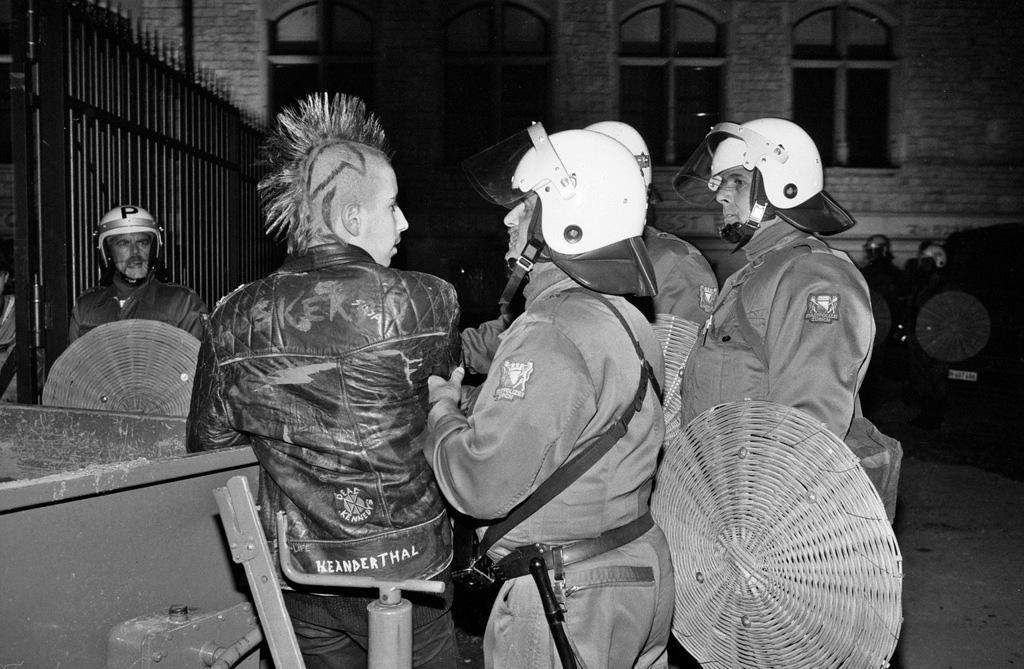
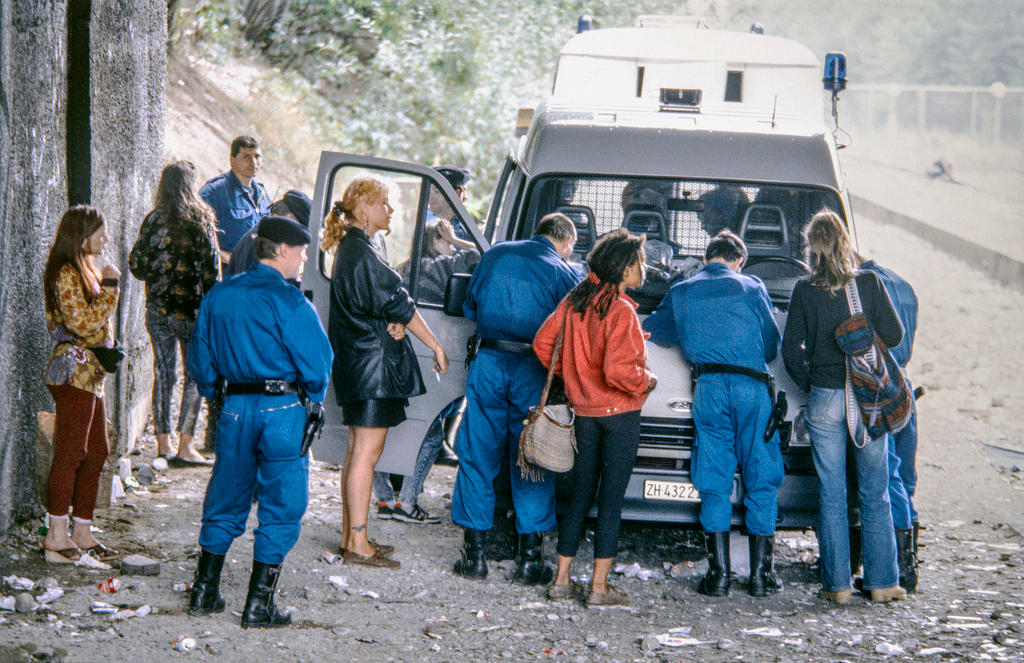
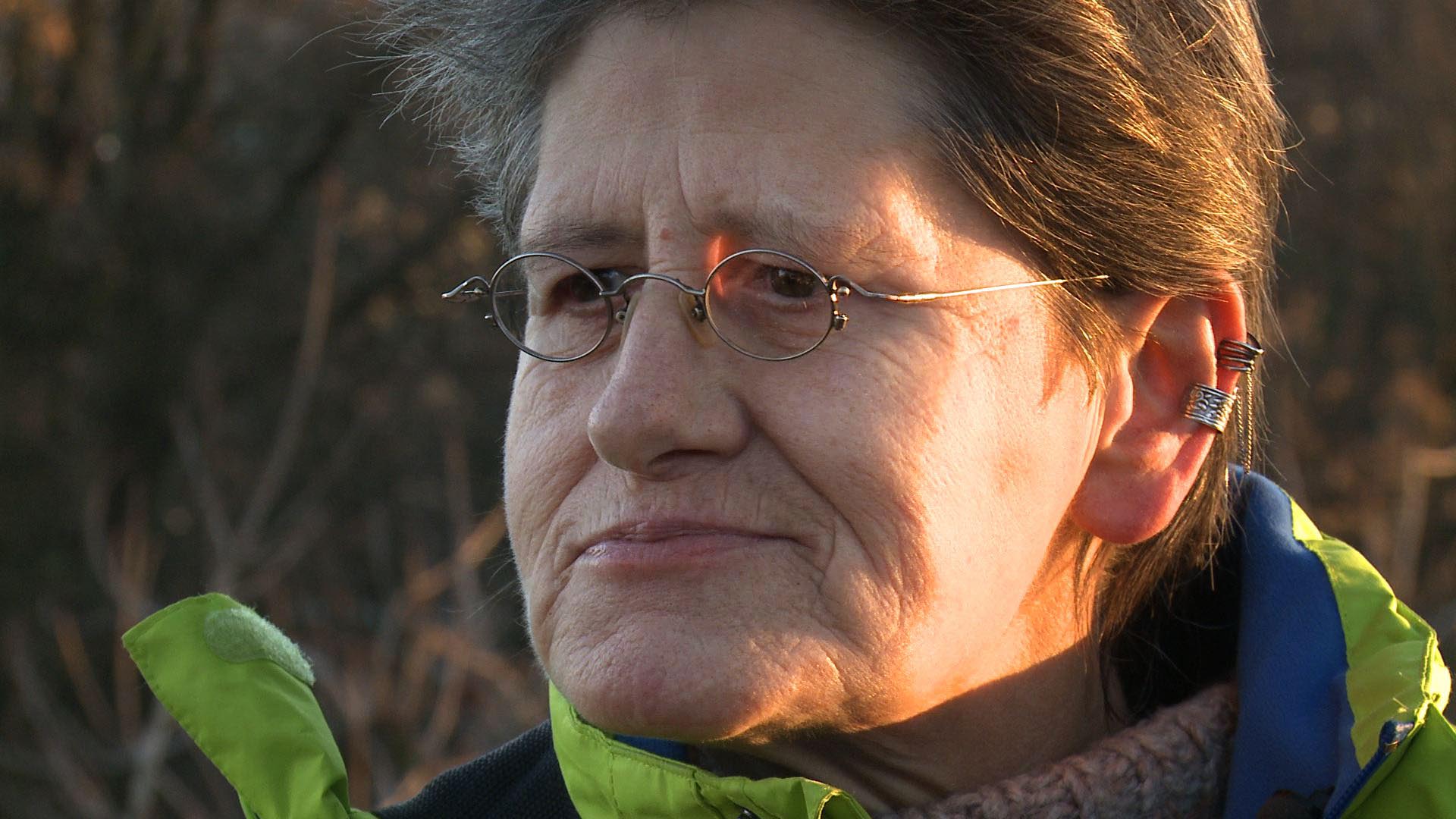
You can find an overview of ongoing debates with our journalists here . Please join us!
If you want to start a conversation about a topic raised in this article or want to report factual errors, email us at english@swissinfo.ch.